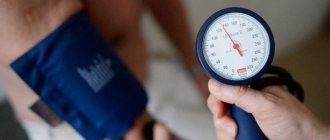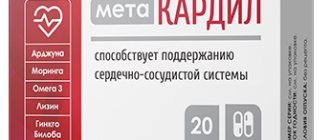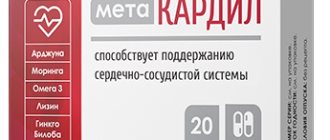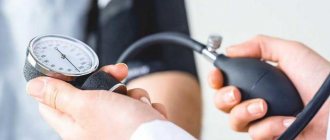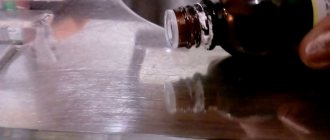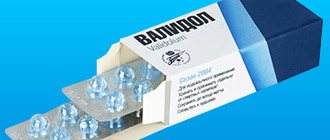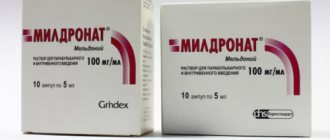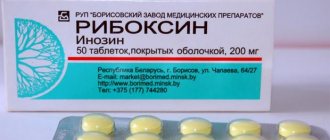Are antibiotics and alcohol compatible? In what cases is the danger of this combination justified and when is it exaggerated? We answer this question in our article.
Sometimes you can't do without antibiotics. They are prescribed for a variety of diseases, and often this happens at completely “inopportune” times: on the eve of a long-awaited celebration or, for example, a corporate party.
Finding themselves in such a situation, some are bored at the holiday table, categorically refusing even a glass of wine or a sip of beer, others decide to interrupt the course of antibiotics, being absolutely sure that they are doing much less harm to their own body.
Let's make a reservation right away: skipping one or two doses of the drug can negate the effectiveness of treatment, moreover, irregular use of an antibiotic will make the pathogen more resistant to its effects and thereby only worsen the problem. To defeat the bacteria “hardened” by these experiments, you will have to increase the dose or prescribe a stronger drug.
But what happens if you drink a glass of wine or a little beer while on antibacterial treatment? Most likely nothing. According to British scientists quoted by the BBC Russian Service, alcohol has no effect on the action of most commonly used antibiotics. They are neutral in relation to each other, which means you should not expect any unpleasant “side effects” from such a combination, of course, if the matter is limited to just one glass of wine and we are not talking about some drugs that should not be mixed with alcohol in any quantity.
To understand all the risks associated with the simultaneous use of any medications, including antibiotics, with alcohol, you should carefully read the instructions and make sure that this very point is not in it.
When can you drink alcohol after taking antibiotics?
Alcoholic drinks cause dehydration and intoxication of the body. This must be taken into account when taking antibiotics, which have their own side effects. As a result, the body, weakened by the disease, is subjected to an additional blow due to the breakdown products of ethanol, which can hardly be called the best treatment option.
However, doctors say that if a person chooses between taking an antibiotic before drinking or skipping the drug, it is better to take it. You cannot interrupt antibiotic treatment on your own; therapy must be completed in full for recovery, so you cannot refuse to take pills for the sake of drinking.
The best option is to delay drinking until after antibiotic treatment is completed. In this case, the body will thank you for your care and support, and the therapy will show the best effect. But if for some reason you cannot stop drinking alcohol during treatment, you should read the instructions for the drug to determine whether you can combine alcohol with the antibiotic prescribed by your doctor or not.
Sources
- Abolonin A.F. Clinical and neurophysiological features and therapy of cerebrovascular disorders in alcoholism with comorbid traumatic brain damage: Abstract of thesis. dis. ...cand. medical sciences - Tomsk, 1997. - 25 p.;
- Avtandilov G.G. Fundamentals of quantitative pathological anatomy: Textbook. - M.: Medicine, 2002. -240;
- Preheim LC, Olsen KM, Yue M, Snitily MU, Gentry MJ. Ethanol feeding does not affect the efficacy or pharmacokinetics of azithromycin, trovafloxacin, or ceftriaxone in a rat model of pneumococcal pneumonia. Alcohol Clin Exp Res. 1999 May;23(5):842-9;
- Mergenhagen KA, Wattengel BA, Skelly MK, Clark CM, Russo TA. Fact versus Fiction: a Review of the Evidence behind Alcohol and Antibiotic Interactions. Antimicrob Agents Chemother. 2021 Feb 21;64(3):e02167-19. doi: 10.1128/AAC.02167-19. PMID: 31871085; PMCID: PMC7038249.
Why can't you drink alcohol with antibiotics?
The question of the compatibility of alcoholic beverages and antibiotics has been facing society for more than 50 years. Around this time, specialists began prescribing the broad-spectrum antibiotic metronidazole to combat bacterial diseases.
After combining metronidazole and alcoholic beverages, patients felt negative symptoms:
- nausea;
- vomiting;
- diarrhea;
- tachycardia;
- redness of the skin;
- itching;
- drowsiness;
- headache;
- confusion;
- dizziness.
The symptoms resembled severe poisoning, although the patients drank no more than usual and had not previously felt so bad after drinking alcohol.
After research, it became clear that the drug is incompatible with alcohol, and today, if a doctor prescribes metronidazole for the treatment of sexually transmitted diseases, diverticulitis, gastrointestinal infections, he must warn the patient not to drink alcohol throughout the entire course of therapy do not do it.
Doctors recorded symptoms similar to those that appear when combining alcohol and metronidazole even earlier, from the chemical substance disulfiram. Today, this substance is successfully used to code alcohol-dependent patients, since after its administration the alcoholic cannot drink even the slightest dose of alcohol.
Is it possible to drink beer after antibiotics?
After completing a course of antibiotics, a person can drink any alcoholic beverages, including beer. If we are talking about drinking foamy drinks during the course of treatment, you should first consult with your doctor or at least read the instructions for the drug to avoid side effects.
We can only recommend that you set your priorities correctly and first put all your efforts into your recovery, and then think about drinking alcohol.
How do alcoholic drinks affect the body?
The basis of any such drink is ethanol. The difference lies in its content. For example, there is 10 times more of it in vodka than in beer. Drinking alcohol in large quantities has a negative effect on the body. No more than a tenth of the volume of ingested ethanol is excreted in the urine and then, the remaining 90% is broken down and absorbed.
Ethanol harms cell membrane lipids. Their viscosity decreases, and the receptors become insufficiently sensitive to the necessary mediators. To prevent this effect, the stomach tries to neutralize ethanol. To do this, the mucous membrane produces much more mucus than in normal digestive mode. On the one hand, this slows down the absorption of the unwanted substance, on the other hand, it causes irritation of the mucous membrane and inhibits the absorption of nutrients and other drugs.
A complex of pathologies called alcoholic liver disease cannot be excluded. When ethanol is abused, cellular degeneration develops, interfering with the normal functioning of the organ.
Alcohol and antibiotics: which drugs are definitely incompatible with alcohol?
Metronidazole. The drug is excreted from the body approximately 2-3 days after the final dose of the antibiotic. Therefore, the manufacturer recommends avoiding drinking alcohol for 48-72 hours after completing the course, and also not drinking alcohol-based cough tinctures and staying away from mouth rinses with ethanol added.
Tinidazole. This drug is used to treat bacterial diseases of the gastrointestinal tract, eliminate pathogens Helicobacter pylori, and sexually transmitted diseases. Drinking alcohol should also be avoided for 2-3 days after finishing the antibiotic course.
Cephalosporins. Antibiotics based on cephalosporins do not interact well with alcoholic beverages. Not many cases of negative effects have been recorded, but for your own good it is better not to combine these medications and alcohol, but to wait until the end of treatment.
Doxycycline. The use of this antibiotic and alcohol is absolutely contraindicated for people with alcohol addiction and liver disease. Violation of the doctor’s recommendations can lead to serious complications in the body’s functioning, after which additional treatment will be required.
Linezolid . The use of this antibiotic and fermented alcoholic beverages, for example, wine, sherry, beer, can lead to significant jumps in blood pressure and deterioration of health.
In what cases is specific therapy prescribed?
Hormone replacement drugs are prescribed only when necessary ; taking them without a doctor’s recommendation is not recommended. There are many reasons for prescribing such medications:
- Failures in the functioning of the pituitary gland - against the background of problems, a lack of growth hormone may occur;
- Encephalitis;
- Complications during puberty;
- Tumors of a malignant nature;
- Problems in the functioning and pathology of the adrenal glands;
- Hereditary problems and disorders;
- Thyroid dysfunction and other problems.
Hormonal drugs are prescribed even in cases where disruptions in the functioning of the hormonal system are minimal - the effect of these compounds in the human body is so important. Drugs include substances that replace hormones or pure hormones themselves.
The result of taking medications is stabilization of the hormonal system and restoration of normal functioning of the body.
Alcohol and antibiotics: when is it safe?
Most modern antibiotics do not include a ban on the consumption of alcoholic beverages in the manufacturer's recommendations.
Among them, the most commonly prescribed drugs are amoxicillin, augmentin and others. If you doubt whether you can comply with the “prohibition” law during treatment, it is better to consult with your doctor when prescribing an antibiotic.
However, it should be understood that alcohol negatively affects a person’s physical health. When the body is weakened by illness and is forced to fight bacteria, you should not lean on intoxicating drinks so as not to interfere with your recovery.
What happens if you drink alcohol during a course of antibiotics?
Before making a final decision about whether to drink or not drink, you should know not only about the reaction to alcohol of specific medications, but also about the general consequences that may arise as a result of combining treatment and drinking strong drinks.
The main consequences of the combination of alcohol and antibiotics:
- Double load on the liver. Antibiotics themselves are hard on the liver. Alcohol is also neutralized and eliminated by the liver, so if you choose to drink alcohol during treatment, you will be putting additional unnecessary stress on the organ.
- Disorders of the central and peripheral nervous systems . The combination of alcohol and certain antibiotics has a strong effect on the nervous system, leading to headaches and dizziness, incoordination, and in some cases, seizures.
- Sleep disorders . Some antibiotics, when combined with alcoholic drinks, lead to problems falling asleep and restless sleep, which negatively affects a person’s daily routine.
- Significant changes in blood pressure after drinking alcohol during antibiotic treatment.
- Disturbances in the gastrointestinal tract . Some antibiotics in combination with strong drinks lead to discomfort and pain in the abdominal area, flatulence, and diarrhea.
- Allergy . The combination of some antibiotics and alcoholic beverages can cause an allergic reaction. The body's reaction to alcohol during treatment is unpredictable, the situation can worsen until anaphylactic shock.
Note that when prescribing antibiotics, qualified specialists must talk about possible side effects and give recommendations regarding lifestyle during therapy. The doctor should also ask if you are taking any medications at the time of treatment. In some cases, other medications may be stopped during antibiotic therapy to reduce the risk of complications for the body or side effects.
Reviews from our clients
Thank you very much to the Botkinsky clinic, we were really able to understand that this is a professional and competent team. Dad is alone in a double room. He was brought into complete order. The nurses and orderlies are attentive and... friendly. Of course, there is still a lot of work ahead, because he is physically very weak now, but a physiotherapist is personally working with him, so we really hope that the treatment will be effective. Read more ""
Thanks for the help
Many thanks to all the clinic staff for the treatment and procedures!
I didn’t get treatment myself, my dad did. In this hospital, professionalism is combined with humanity, the conditions for patients are very pleasant and comfortable! … />Thank you! Read more “Gratitude for your help” Zoya
Gratitude to the Botkinsky Clinic
I would really like to thank the team at the Botkinsky Clinic for their high level of professionalism and well-coordinated work.
The clinic staff is very delicate, careful, but at the same time efficient, everything is done masterfully. This combination doesn't happen... all that often. Special thanks to psychologists. And... the cooks get very tasty food! Read more “Gratitude to the Botkinsky Clinic” Nikolay M.
The best clinic
I don’t hide the fact that I was treated at the clinic.
What I would like to note. Cleanliness, order. Friendliness, delicious food!!! A special sincere THANK YOU to my doctors. They are the best! I have never met such an attitude towards myself!!! Alexander M.
Many thanks to the doctors of the clinic
I would like to say a huge thank you to the doctors at the Botkinsky Clinic for helping my husband.
They say that you can’t stop drinking, that it needs to be treated... And this is really true. The husband was in the clinic for 6 days... coding was carried out. I can say that he returned home a completely different person. The conditions for recovery in the clinic are as comfortable as possible. Moreover, what is important, relatives can always be in touch, they are always aware of the condition of their loved one. Thanks to the whole team! I hope that the treatment results will last for all patients. Read more “Many thanks to the doctors of the clinic” Natalya
I thank the doctors of the clinic
Hello.
I am a graduate of your wonderful place. I underwent various auxiliary procedures - IVs, electrosleep, yoga, massage, etc. I thank my attending physician, as well as my irreplaceable psychologist. It’s especially good to come to your senses... groups helped me, where everyone talks about themselves without affecting the personality of others. The experience of people with the same problem as you saves you from many pitfalls and problems. Thanks to the clinic for organizing these groups, I hope that I can continue to attend them! Continue reading “I thank the doctors of the clinic” Anna
Low bow to the doctors
Many thanks from a patient brought back to life.
Doctors are honest, kind, hardworking, treat patients warmly, and charge them with their positivity. Here they actually help people get back on their feet... start a new life. May everything be fine with you all!!! Continue reading “A low bow to the doctors” Sasha
Literature:
- Methods of psychotherapy for drug addicted patients / I. D. Darensky. — Moscow: Sputnik+ Company, 2007. — 414 p.
- A manual on narcology for doctors and paramedics of primary medical care / A. A. Churkin, T. V. Klimenko. - Moscow ; Khanty-Mansiysk: Health and Society, 2006 (Cheboksary: IPK Chuvashia). — 173 p.
- How to get rid of bad habits quickly and without problems: [result 100%] / I. A. Cheryasova. - Moscow: RIPOL classic, 2008. - 191 p.
Need some advice?
OR CALL A DOCTOR
CALL!
+7
